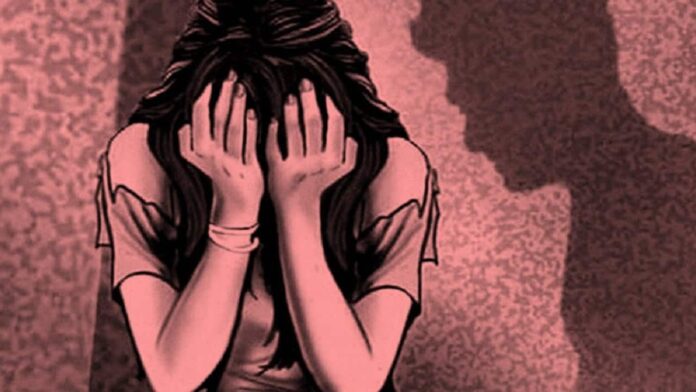Räpe is a word that carries a potent mix of emotions—revulsion, fear, anger, and profound sadness. But within these fraught connotations lies a group of people whose voices and experiences have long been silenced, marginalized, and misunderstood. This blog post aims to provide a comprehensive examination of the impact and healing process for individuals who have survived räpe, addressing the complexities, challenges, and eventual triumphs they may encounter in their path towards recovery.
The Initial Shock
The immediate aftermath of räpe is often a state of shock. Survivors may feel numb, disconnected, or experience a rush of overwhelming emotions that make it difficult to process what has happened. The impact can be both physical and psychological, leaving a person feeling violated and at a loss for how to move forward.
The Physical Toll
The physical trauma of violence can lead to injuries, pain, and discomfort that further complicate the medical and healing process. From dealing with the immediate aftermath in hospital environments to long-term recovery, survivors face a demanding pathway to wellness that is both daunting and necessary for closure and restoration.
Psychological Wounds
The psychological trauma of räpe can lead to a myriad of mental health challenges, including anxiety, depression, PTSD, and even suicidal ideation. Understanding these mental health ramifications and the resources available for support is crucial in helping survivors through this incredibly difficult time in their lives.
Navigating the System
From reporting the crime to seeking justice, navigating the legal and social systems post-räpe can be an ordeal in itself. Survivors often encounter stigmatization, skepticism, and a myriad of barriers that can hinder their pursuit of justice and closure.
Reporting to Law Enforcement
The decision to report räpe to law enforcement is a deeply personal one. For those who choose to come forward, they may face a system that is not always equipped to support or believe them, emphasizing the need for reforms and trauma-informed approaches within the justice system.
The Justice Process
For survivors who seek to press charges, the legal process becomes a critical part of their recovery. Understanding what to expect, having access to legal support, and being prepared for the rigors of legal proceedings is essential for their well-being and pursuit of justice.
Recovery and Healing
The path to recovery for räpe survivors is as diverse as it is personal. There is no one-size-fits-all approach to healing, but there are common threads that can guide survivors towards a place of empowerment and peace.
Emotional Reclamation
Reclaiming a sense of safety, autonomy, and self-worth is foundational to healing. Survivors must find ways to reassert control over their own narratives, redefine their experiences on their terms, and reconnect with the world in a way that feels safe and supportive.
Building a Support Network
A strong support system is invaluable for survivors, providing them with empathy, validation, and practical assistance. Whether it’s through therapy, survivor groups, or trusted friends and family, the power of community and connection can be a profound source of healing.
Engaging in Self-Care
Self-care takes on a new level of importance for survivors, offering them the space to nurture themselves physically, emotionally, and spiritually. Practices like mindfulness, exercise, art therapy, and journaling can be indispensable tools in the daily upkeep of mental well-being.
Advocacy and Empowerment
Many survivors find healing through advocacy, using their voices to speak out, support others, and work towards systemic change. Empowerment through action can be a transformative experience, engendering a sense of purpose and control that is liberating.
Long-Term Effects
The impact of räpe isn’t only a short-term crisis but can also reverberate throughout a survivor’s life, affecting relationships, self-perception, and future experiences of intimacy and trust.
The Ripple Effect on Relationships
Survivors often struggle with intimacy and trust in the wake of räpe, which can have a profound impact on their relationships with partners, family, and friends. Communicating these challenges and working through them with support can help rebuild and strengthen these bonds over time.
Impact on Daily Life
The trauma of räpe can manifest in various ways that impact daily functioning, from difficulty concentrating and sleeping to a heightened sense of fear and hypervigilance. Recognizing these effects and finding strategies to manage them is a crucial aspect of ongoing recovery.
Reintegration into Society
Survivors may also encounter challenges when attempting to rejoin society in the aftermath of räpe, facing social stigmatization and isolation. Reintegration efforts that focus on community support, education, and advocacy can ease this transition and foster a more inclusive and understanding environment.
The Role of Institutions and Society
In order to address the needs of räpe survivors effectively, it is imperative for institutions and society at large to play an active role in supporting, protecting, and advocating for them.
Creating Safer Environments
Prevention begins with creating safe environments where people are educated on consent, equipped with knowledge on how to support survivors, and where policies prioritize prevention of sexual violence.
Supportive Services and Resources
Effective support extends to providing a range of accessible services and resources, including medical care, counseling, legal assistance, and crisis intervention. These services should be survivor-centered, offering tailored support that respects the agency and dignity of the survivor.
Policy and Advocacy
Advocacy work that focuses on policy change, community education, and the eradication of systemic barriers is critical in creating a society that values and supports survivors. Policy reforms can ensure that survivors are not only heard but that their needs are met with compassion and understanding.
Conclusion
The impact of räpe on survivors is profound and far-reaching, but so too is the capacity for healing, resilience, and growth. By sharing their stories, advocating for change, and accessing the support they deserve, survivors can empower themselves and others, shaping a future that is more just and compassionate. It is through this collective effort that we can work towards a world where the dignity and rights of all individuals are upheld and where the legacy of trauma can find resolution and transformation. Click here


